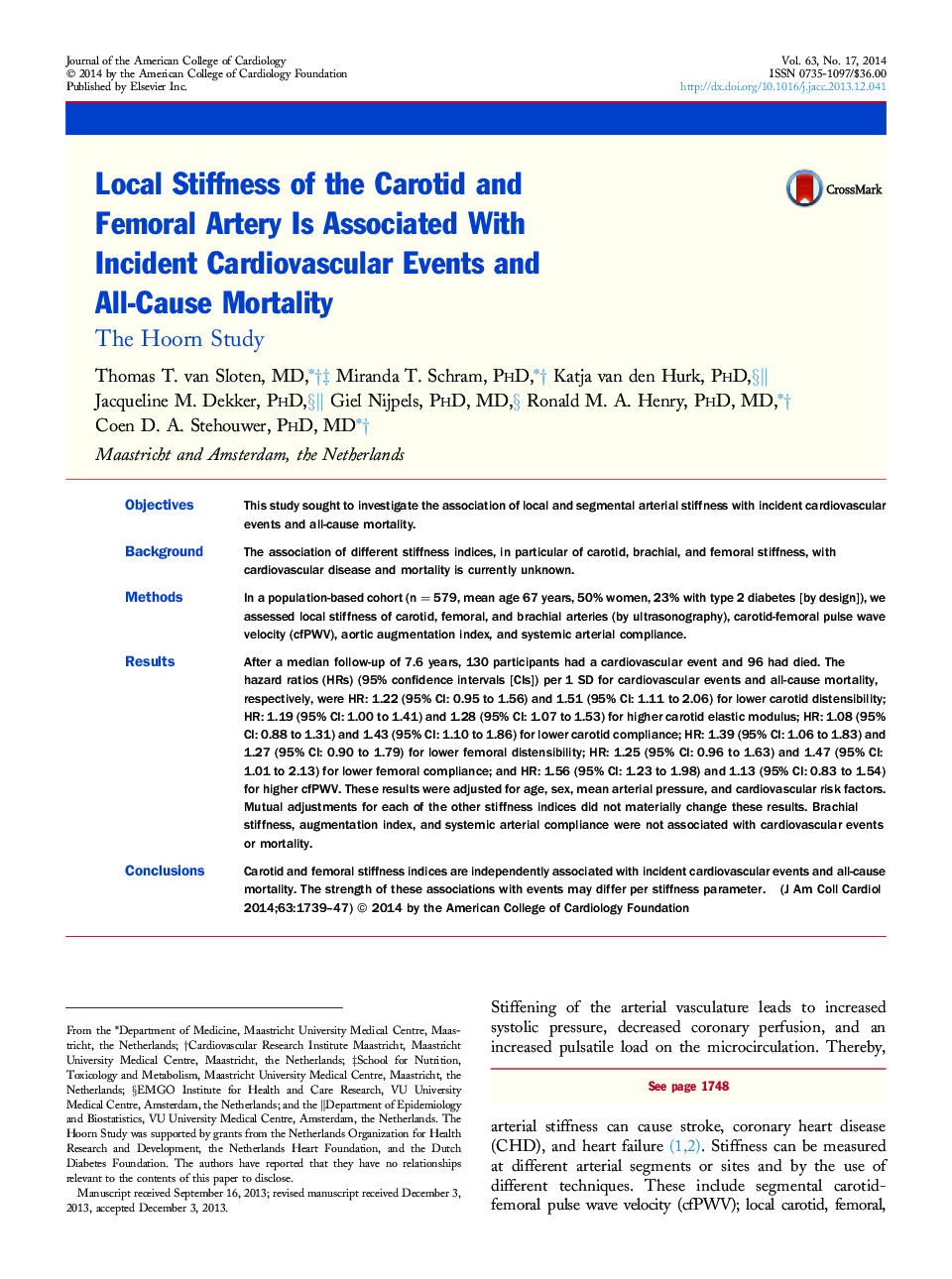| کد مقاله | کد نشریه | سال انتشار | مقاله انگلیسی | نسخه تمام متن |
|---|---|---|---|---|
| 2944280 | 1577105 | 2014 | 9 صفحه PDF | دانلود رایگان |
ObjectivesThis study sought to investigate the association of local and segmental arterial stiffness with incident cardiovascular events and all-cause mortality.BackgroundThe association of different stiffness indices, in particular of carotid, brachial, and femoral stiffness, with cardiovascular disease and mortality is currently unknown.MethodsIn a population-based cohort (n = 579, mean age 67 years, 50% women, 23% with type 2 diabetes [by design]), we assessed local stiffness of carotid, femoral, and brachial arteries (by ultrasonography), carotid-femoral pulse wave velocity (cfPWV), aortic augmentation index, and systemic arterial compliance.ResultsAfter a median follow-up of 7.6 years, 130 participants had a cardiovascular event and 96 had died. The hazard ratios (HRs) (95% confidence intervals [CIs]) per 1 SD for cardiovascular events and all-cause mortality, respectively, were HR: 1.22 (95% CI: 0.95 to 1.56) and 1.51 (95% CI: 1.11 to 2.06) for lower carotid distensibility; HR: 1.19 (95% CI: 1.00 to 1.41) and 1.28 (95% CI: 1.07 to 1.53) for higher carotid elastic modulus; HR: 1.08 (95% CI: 0.88 to 1.31) and 1.43 (95% CI: 1.10 to 1.86) for lower carotid compliance; HR: 1.39 (95% CI: 1.06 to 1.83) and 1.27 (95% CI: 0.90 to 1.79) for lower femoral distensibility; HR: 1.25 (95% CI: 0.96 to 1.63) and 1.47 (95% CI: 1.01 to 2.13) for lower femoral compliance; and HR: 1.56 (95% CI: 1.23 to 1.98) and 1.13 (95% CI: 0.83 to 1.54) for higher cfPWV. These results were adjusted for age, sex, mean arterial pressure, and cardiovascular risk factors. Mutual adjustments for each of the other stiffness indices did not materially change these results. Brachial stiffness, augmentation index, and systemic arterial compliance were not associated with cardiovascular events or mortality.ConclusionsCarotid and femoral stiffness indices are independently associated with incident cardiovascular events and all-cause mortality. The strength of these associations with events may differ per stiffness parameter.
Journal: Journal of the American College of Cardiology - Volume 63, Issue 17, 6 May 2014, Pages 1739–1747
